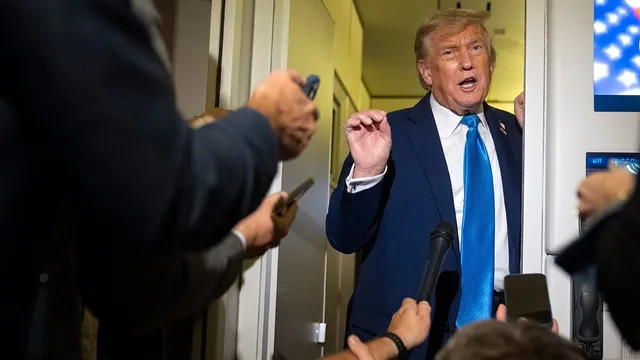
Senate changes threaten Trump's tax and healthcare proposal
2025-06-17 16:50- The Senate Finance Committee has unveiled its version of a legislative package addressing tax and healthcare.
- Key alterations have been made regarding Medicaid and SALT deductions, causing friction within Senate support.
- The future of the legislative proposal looks uncertain, as it must reconcile differences between the House and Senate versions.
Express your sentiment!
Insights
In the United States, the Senate Finance Committee recently unveiled its portion of President Donald Trump's extensive tax and healthcare legislative package, aiming to finalize it ahead of a self-imposed July 4 deadline. This committee, led by Senator Mike Crapo, has sought to address divisive issues including cuts to Medicaid, adjustments to state and local tax (SALT) deductions, and modifications to child tax credits as they work on their proposal. Notably, the tax provisions from Trump's 2017 Tax Cuts and Jobs Act are intended to be made permanent, while other spending programs are targeted for cuts. The managers of the bill have faced considerable pressure to maintain key compromises reached during the House passage of the legislation. This comes amid resistance within the Senate from members like Rep. Mike Lawler, who is concerned about changes to SALT caps and Medicaid adjustments. The Senate's version notably reverts SALT deductions from the negotiated $40,000 back down to $10,000, creating significant tension. The child tax credit has also been modified, dropping from $2,500 in the House bill to $2,200, though both amounts are still an increase from the current $2,000. Changes to Medicaid have also sparked considerable opposition, particularly the proposed reduction of the Medicaid provider tax rate from 6% to 3.5% by 2031. Several Republican senators, including Josh Hawley, Susan Collins, Jerry Moran, and Lisa Murkowski, have publicly expressed their unwillingness to support additional cuts to Medicaid, reflecting the delicate balance needed to ensure enough party support for the bill. The financial implications of the Senate's proposal also present a significant hurdle, with estimates suggesting an increase in the national deficit by an additional $5 trillion over the next decade; this contrasts the House’s projected $4 trillion increase. Such figures are concerning to fiscal conservatives and could jeopardize support from more budget-conscious senators. As this legislative package faces its next steps, it will undergo scrutiny from the Senate parliamentarian, who will verify that its provisions align with federal budget matters, ensuring compliance to avoid a filibuster. The future viability of the proposal looks uncertain as both chambers must reconcile significant differences before it can be enacted.